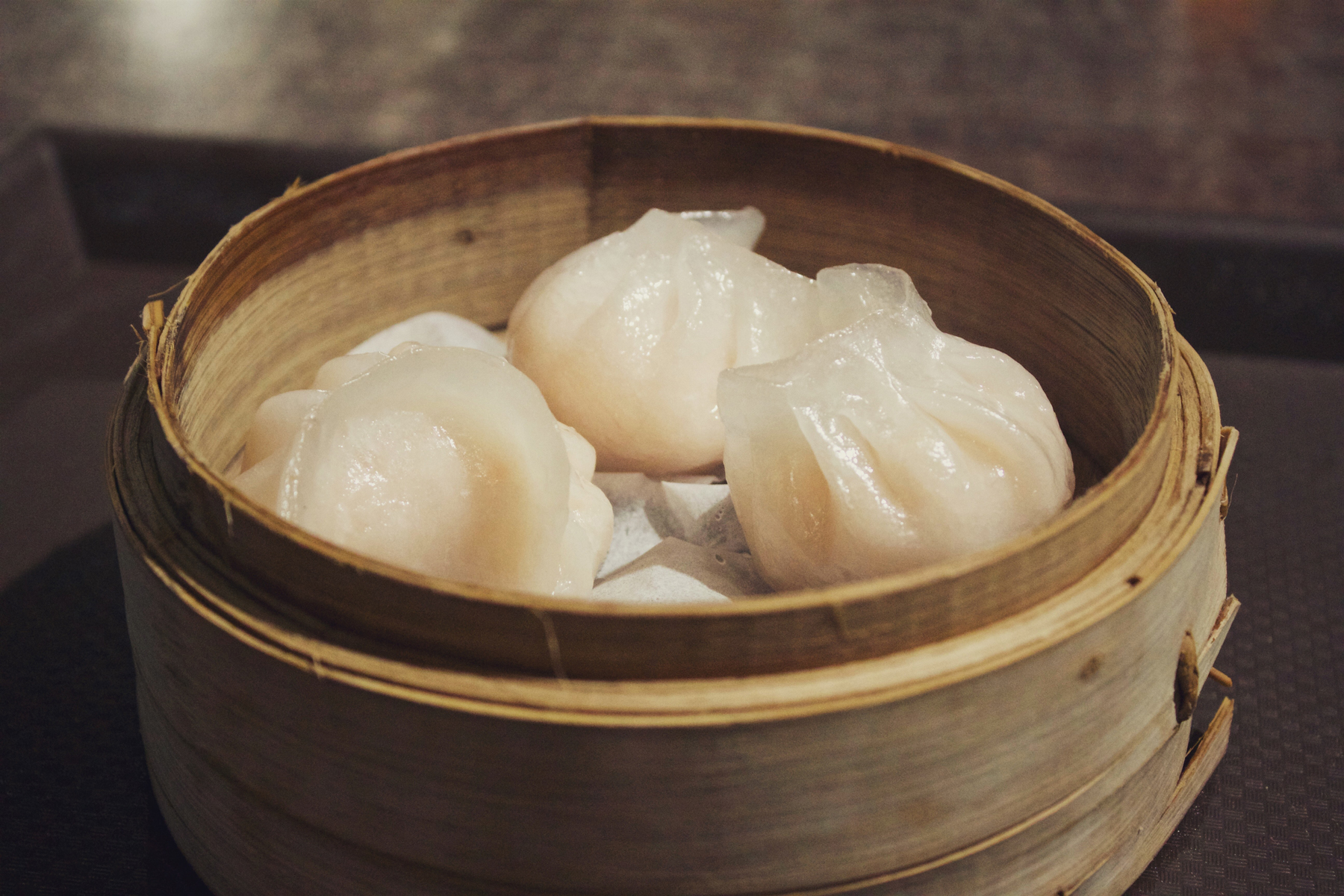Before the advent of social media and “Instagram worthy” foods, I never saw Asian cuisine portrayed as trendy or fine dining, but instead as cheap, 2 a.m. food. I remember feeling ashamed as a young child at meal times. My rice and stir fry vegetables looking “unclean” next to peanut butter and jelly sandwiches. I stopped the microwave timer early to prevent Chinese aromatics from traveling further and pretended to be disgusted by certain dishes to fit in. As I became older, I gradually became more comfortable with my food, but I still did not view it as “in.”
That all changed when Instagram became popular. Asian food exploded onto the scene. People wanted sushi, rolled ice cream, boba, Taiyaki ice cream, matcha flavors, poke, sushi burritos and Korean barbecue. A wave of Asian cuisine crashed over American social media. Taking a page out of Instagram, white chefs have also started to delve into Asian cuisine, raising a host of issues and highlighting the racial disparities in cooking.
Cultural Appropriation Versus Cultural Appreciation
Lucky Lee’s, Lucky Cricket, Lucky Cat. If these names sound familiar, it is because they are the names of new, white-owned Chinese restaurants that have been steeped in controversy. The white owners of Lucky Lee’s claimed to set themselves apart from other Chinese American restaurants by calling their food “clean” and describing themselves as “mindful about the quality of ingredients,” implying that other Chinese American restaurants are dirty and of low quality. The owners have released an apology and a statement explaining their claims, but the damage has already been done.
In 2018, celebrity chef Andrew Zimmern, who has no culinary training in Chinese cuisine, came under fire for his new chain restaurant, Lucky Cricket, not because of his restaurant’s advertising, but instead, because of his interviews. To elevate his restaurant, he insulted others. He said, “I think I’m saving the souls of all the people from having to dine at these horseshit restaurants masquerading as Chinese food that are in the Midwest.”
He demeaned the culinary efforts of Asians and Asian Americans in the U.S., especially those who have blended Asian and American cuisines, sometimes targeting specific individuals. Zimmern criticized P.F. Chang’s, which was founded by Chinese American Phillip Chang, son of Cecilia Chiang. “Despite how he looks on the outside, he’s a rich American kid on the inside, right?”
Despite his criticism of Phillip Chang for not being “Asian enough” to have a good Chinese American restaurant, Zimmern himself is a white man. Why is a white-owned Chinese American chain restaurant better than an Asian-owned one? Zimmern’s attack on Chang’s financial privilege revealed his own white privilege. Another apology from a celebrity chef issued into the internet abyss, to no avail.
Gordon Ramsay and his Lucky Cat restaurant faced a whole different controversy, mainly because of the restaurant’s branding and leadership. Ramsay called his new restaurant “an authentic Asian Eating House,” despite not having an Asian chef. Additionally, as Jeff Yang pointed out on Twitter, “It’s impossible to have an ‘authentic Asian restaurant’ because Asia is a *continent*, not a cuisine. It’s like if he said he was opening an ‘authentic European restaurant.’”
The restaurant promo has not offered any in-depth information besides just being “inspired by the drinking dens of 1930s Tokyo and the Far East.” Their diction just solidifies the idea of exotifying Asia instead of paying homage to the actual variety of cuisines found on the continent. Despite the controversy, the restaurant currently seems to have decent reviews on Tripadvisor and Yelp.
Ramsay’s restaurant underlines issues in the culinary field. Should chefs be able to cook food from a different culture? As an Asian American who has eaten authentic Chinese food, American food and many fusions, I say, yes. If a chef has many years of training in a certain cuisine and respects said cuisine, they can call their food authentic.
If a chef has not had the training but loves the cuisine and cooks it through the lens of another culture, they should be honest and respectful, giving credit where it is due. A quick cursory search reveals that most people’s thinking aligns with mine.
People of Color Often Do Not Get Paid Fairly
However, even while the general consensus allows for diversity in cooking, startling hypocrisy remains. White chefs are allowed to pick and choose from various cuisines, while chefs of color are often pigeonholed into their ethnic cuisine.
As Chinese American chef Jenny Dorsey reveals, career advisors in culinary school would only give one name in fine dining. Fellow Chinese American chef Anita Lo. Dorsey said, “I would have been happy to work there. But it was literally the only fine-dining restaurant that they came back with as an option. I’m Chinese American, and I happen to want to work in fine dining. But to an outsider, whether that was my career advisor at culinary school or the other chefs I interact with, those two things are always together.”
Other POC chefs, like Asha Gomez and Nik Sharma, came out with similar stories. It is quite common to see white chefs have restaurants that claim to serve authentic Chinese food, but it is rarer to see Asian, Black or Latino chefs have French restaurants.
After Bon Appetit’s implosion, more conversations started around racial inequality in the culinary world. POC in the culinary field are often underpaid in comparison to their white counterparts. After Bon Appetit’s editor-in-chief Adam Rapoport appeared in a photo in brownface, many employees and former employees came out with stories of discrimination.
Sohla El-Waylly and Christina Chaey, who were Bon Appetit employees at the time and appeared in many popular videos, exposed a pay gap between non-white and white employees. El-Waylly wrote an Instagram story that she is only paid $50,000 per year to help mostly white editors who had less experience than her, while also not being paid for video appearances.
Chaey posted on Instagram to share her own experience. “Like Sohla El-Waylly, I have never received a single dollar for my video contributions,” she said. “I have never received a merit raise or promotion for my work in almost three years of services.”
While shocking, Bon Appetit’s story is hardly unique. According to PBS, POC enrollment in culinary schools have gone up, but Black chefs are still underrepresented in top-level positions. A study of Seattle’s fine-dining restaurants found that Black applicants face harsher judgment than their white counterparts and were given fewer opportunities. The narrative of nonwhite chefs not being paid and employed equally extends far beyond Bon Appetit’s kitchens.
Other former Bon Appetit employees stressed how food from POC was often disregarded. On Twitter, Alex Lau wrote, “As a person that shot the hot 10 restaurants for multiple years, what made me want to leave was when I saw that year after year, I was only shooting Asian and white chefs.” When he pushed for more diversity, “their response [was] oh you know, the recipes get tricky, and readers probably wouldn’t want to make the food.” At the same time, Bon Appetit promoted “the wonders of 3-day long recipes.”
POC Rarely Get the Credit They Deserve
Not giving POC chefs credit for their work remains a problem. In early 2020, “Rage Baking: The Transformative Power of Flour, Fury, and Women’s Voices” was published to showcase women’s struggles, particularly in relation to the 2016 election. However, long before the book was published, beginning in 2015, Tangerine Jones started using #ragebaking, had the @ragebaking Instagram handle, used the @ragebaked Twitter handle and started the website ragebaking.com.
Jones started rage baking as a way to deal with racial injustice. The cookbook editors — Katherine Alford and Kathy Gunst — are both white and work for big media companies. Despite Jones having used the phrase “rage baking” for all of her social media, she was never invited to contribute to the cookbook, nor was she given credit. The editors white washed Jones’ rage baking, disregarding her fight with racial inequality and turning the spotlight on gender inequality.
On Medium, Jones wrote about this controversy. She said, “I turned to my kitchen because, personally, it’s one of the places I commune with my ancestors. I’m a Black woman born and partly raised in the South… I’ve been taught that they hold the heart of a home and, collectively, the pulse of a community.” She included screenshots of messages between her and the cookbook’s editors, who contacted her after the book was released.
“If all this research around Rage Baking had been done prior to the book’s publication and the intention was to be a celebration of feminist women’s voices, why wasn’t I acknowledged for my efforts or contacted?” Jones asked. She does not believe that they didn’t know she existed, because some of the others cited in the book began their work after she did. “If these other instances were found, I most certainly would have come up in a cursory search,” Jones said.
Racism permeates the culinary field. From professional chefs to large companies to bloggers, racism has shaped the way POC and their food have been treated.

















